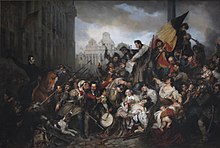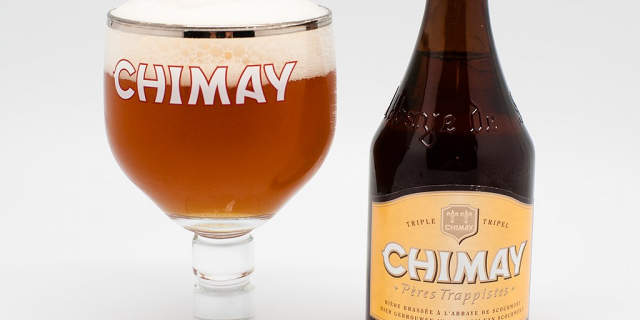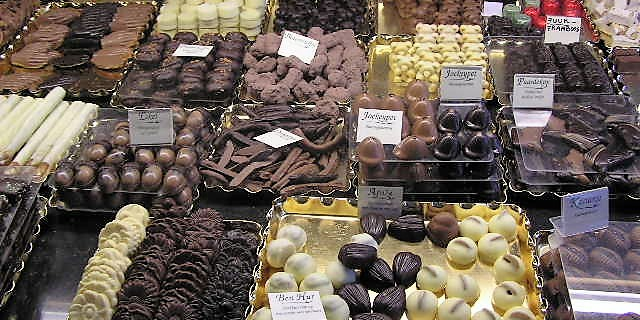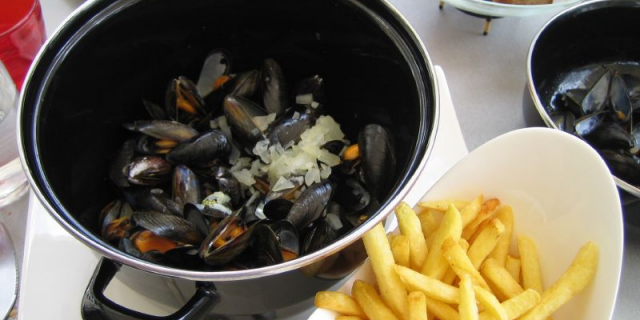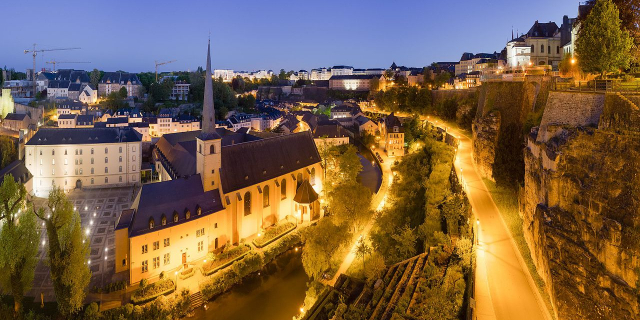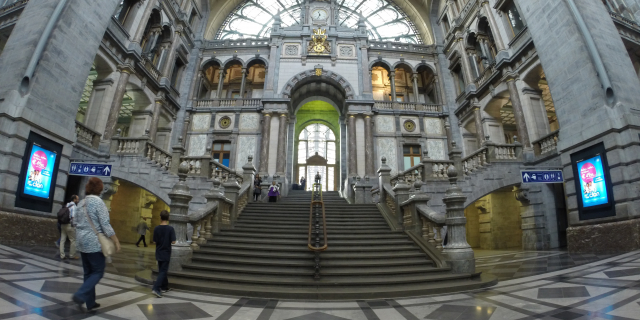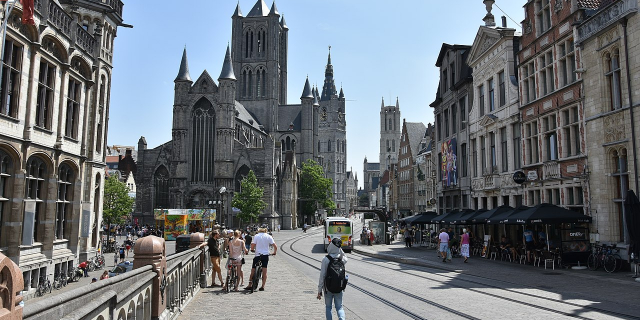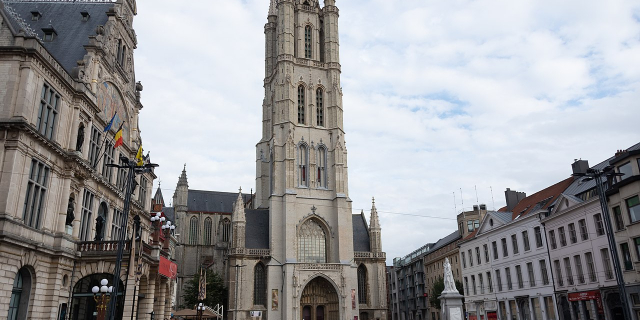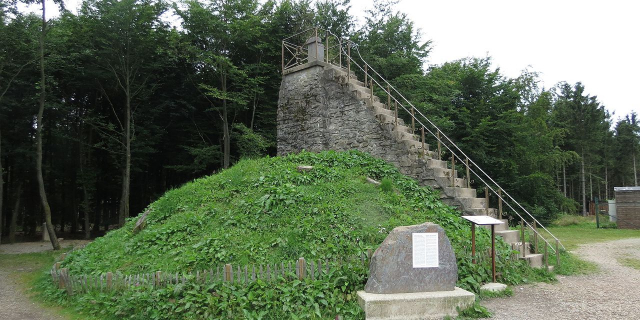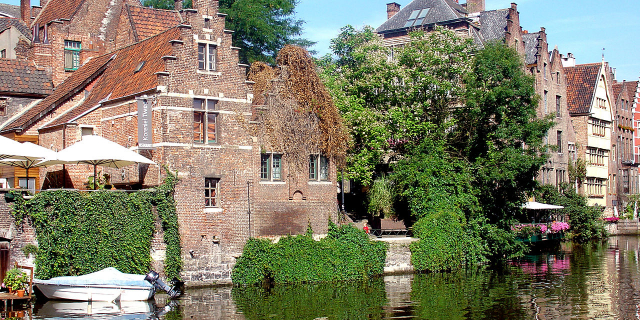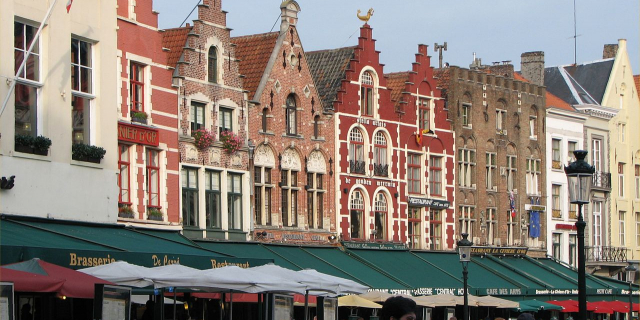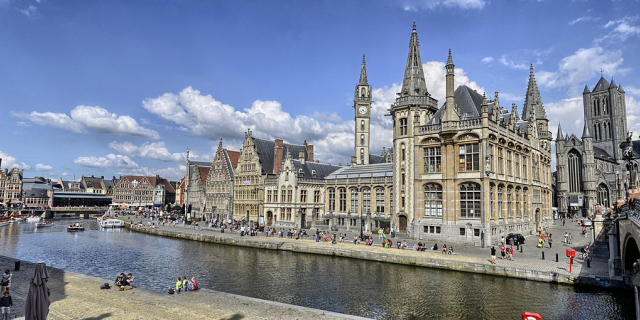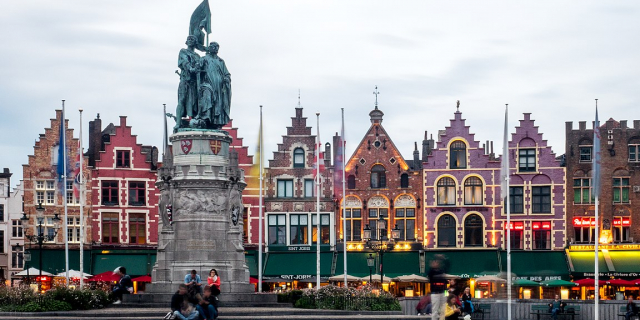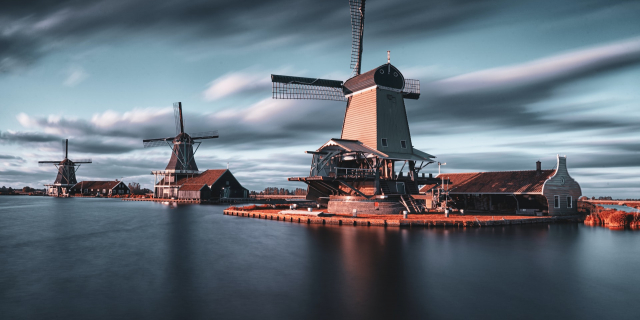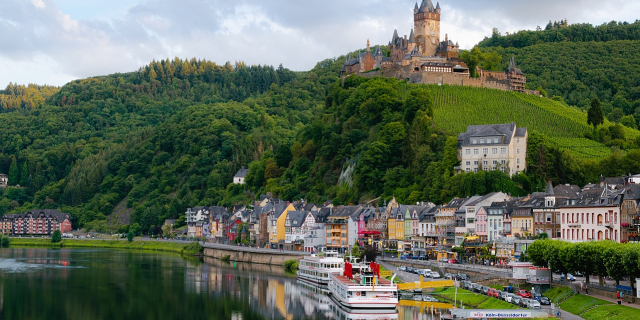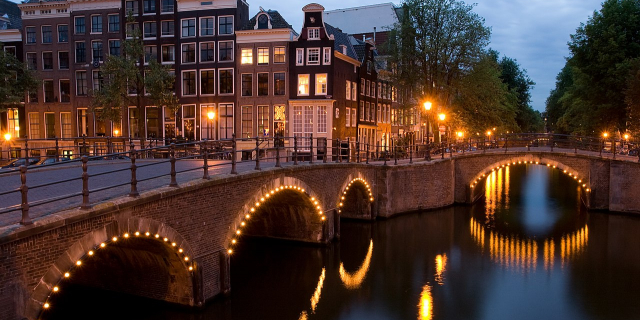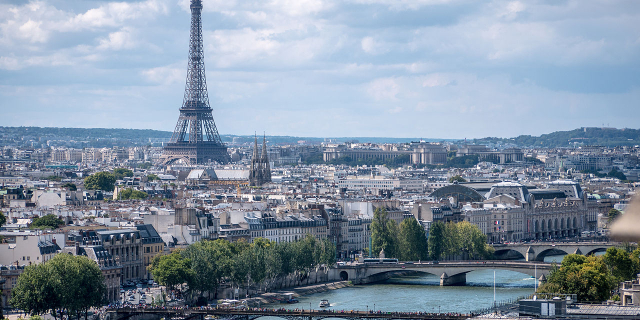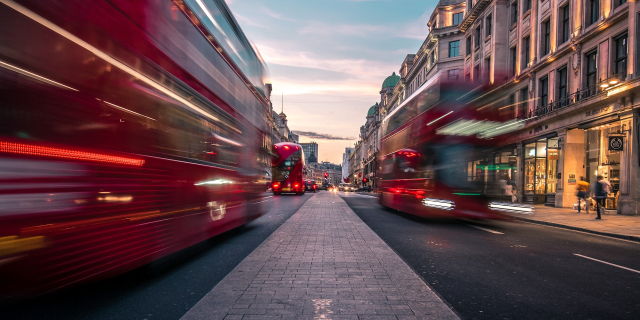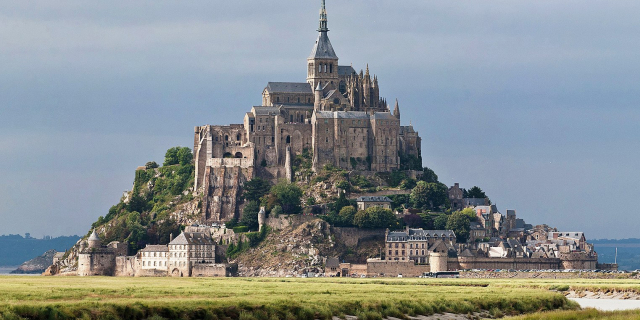Belgium
Context of Belgium
Belgium, officially the Kingdom of Belgium, is a country in Northwestern Europe. The country is bordered by the Netherlands to the north, Germany to the east, Luxembourg to the southeast, France to the southwest, and the North Sea to the northwest. It covers an area of 30,528 km2 (11,787 sq mi) and has a population of more than 11.5 million, making it the 22nd most densely populated country in the world and the 6th most densely populated country in Europe, with a density of 376/km2 (970/sq mi). Belgium is part of an area known as the Low Countries, historically a somewhat larger region than the Benelux group of states, as it also included parts of northern France. The capital and largest city is Brussels; other major cities are Antwerp, Ghent, Charleroi, Liège, Bruges, Namur, and Leuven.
Belgium is a sovereign state and a federal cons...Read more
Belgium, officially the Kingdom of Belgium, is a country in Northwestern Europe. The country is bordered by the Netherlands to the north, Germany to the east, Luxembourg to the southeast, France to the southwest, and the North Sea to the northwest. It covers an area of 30,528 km2 (11,787 sq mi) and has a population of more than 11.5 million, making it the 22nd most densely populated country in the world and the 6th most densely populated country in Europe, with a density of 376/km2 (970/sq mi). Belgium is part of an area known as the Low Countries, historically a somewhat larger region than the Benelux group of states, as it also included parts of northern France. The capital and largest city is Brussels; other major cities are Antwerp, Ghent, Charleroi, Liège, Bruges, Namur, and Leuven.
Belgium is a sovereign state and a federal constitutional monarchy with a parliamentary system. Its institutional organization is complex and is structured on both regional and linguistic grounds. It is divided into three highly autonomous regions: the Flemish Region (Flanders) in the north, the Walloon Region (Wallonia) in the south, and the Brussels-Capital Region. Brussels is the smallest and most densely populated region, as well as the richest region in terms of GDP per capita. Belgium is also home to two main linguistic communities: the Flemish Community, which constitutes about 60 percent of the population, and the French Community, which constitutes about 40 percent of the population. A small German-speaking Community, numbering around one percent, exists in the East Cantons. The Brussels-Capital Region is officially bilingual in French and Dutch, although French is the dominant language. Belgium's linguistic diversity and related political conflicts are reflected in its complex system of governance, made up of six different governments.
Since the Middle Ages, Belgium's central location near several major rivers has meant that the area has been relatively prosperous, connected commercially and politically to its bigger neighbours. The country as it exists today was established following the 1830 Belgian Revolution, when it seceded from the United Kingdom of the Netherlands, which had incorporated the Southern Netherlands (which comprised most of modern-day Belgium) after the Congress of Vienna in 1815. The name chosen for the new state is derived from the Latin word Belgium, used in Julius Caesar's "Gallic Wars", to describe a nearby region in the period around 55 BCE. Belgium has also been the battleground of European powers, earning the moniker the "Battlefield of Europe", a reputation reinforced in the 20th century by both world wars.
Belgium participated in the Industrial Revolution, and during the course of the 20th century, possessed a number of colonies in Africa. Between 1885 and 1908, the Congo Free State, which was privately owned by King Leopold II of Belgium, was characterized by widespread atrocities and disease, leading to a population decline of millions; amid public outcry in Europe, Belgium annexed the territory as a colony. The Belgian colonial empire gained independence between 1960 and 1962.
The second half of the 20th century was marked by rising tensions between the Dutch-speaking and the French-speaking citizens fuelled by differences in language and culture and the unequal economic development of Flanders and Wallonia. This continuing antagonism has led to several far-reaching state reforms, resulting in the transition from a unitary to a federal arrangement between 1970 and 1993. Despite the reforms, tensions between the groups have remained, if not increased; there is significant separatism particularly among the Flemish; controversial language laws exist such as the municipalities with language facilities; and the formation of a coalition government took 18 months following the June 2010 federal election, a world record. Unemployment in Wallonia is more than double that of Flanders, which boomed after the Second World War.
Belgium is one of the six founding countries of the European Union, and its capital, Brussels, is also the de facto capital of the European Union itself, hosting the official seats of the European Commission, the Council of the European Union, and the European Council, as well as one of two seats of the European Parliament (the other being Strasbourg). Belgium is also a founding member of the Eurozone, NATO, OECD, and WTO, and a part of the trilateral Benelux Union and the Schengen Area. Brussels also hosts the headquarters of many major international organizations, such as NATO.
Belgium is a developed country, with an advanced high-income economy. It has very high standards of living and is categorized as "very high" on the Human Development Index.
More about Belgium
- Currency Euro
- Calling code +32
- Internet domain .be
- Mains voltage 230V/50Hz
- Democracy index 7.51
- Population 11584008
- Area 30528
- Driving side right
- Antiquity
 Gallia Belgica at the time of Julius Caesar's conquest of Gaul in 54 BCEAntiquityRead less
Gallia Belgica at the time of Julius Caesar's conquest of Gaul in 54 BCEAntiquityRead less Gallia Belgica at the time of Julius Caesar's conquest of Gaul in 54 BCE
Gallia Belgica at the time of Julius Caesar's conquest of Gaul in 54 BCEGaul is divided into three parts, one of which the Belgae inhabit, the Aquitani another, those who in their own language are called Celts, in ours Gauls, the third.
(...) Of all these, the Belgae are the strongest (...) .
— Julius Caesar, De Bello Gallico, Book I, Ch. 1
According to Julius Caesar, the Belgae were the inhabitants of the northernmost part of Gaul. They lived in a region stretching from Paris to the Rhine, which is much bigger than modern Belgium. But he also specifically used the Latin word "Belgium", to refer to a politically dominant part of that region, which is now in northernmost France.[1] Modern Belgium corresponds to the lands of the most northerly Belgae, the Morini, Menapii, Nervii, Germani Cisrhenani, and Aduatuci, who Caesar found particularly warlike and economically undeveloped. Caesar described this region as having strong kinship links to the Germanic tribes east of the Rhine. The area around Arlon in southern Belgium was a part of the country of the Treveri.
After Caesar's conquests, Gallia Belgica came to be the Latin name of a large Roman province covering most of Northern Gaul, including the Treveri. However, areas closer to the lower Rhine frontier, including the eastern part of modern Belgium, subsequently became part of the frontier province of Germania Inferior, which continued to interact with their neighbours outside the empire. At the time when central government collapsed in the Western Roman Empire, the Roman provinces of Belgica and Germania were inhabited by a mix of a Romanized population and Germanic-speaking Franks who came to dominate the military and political class.
Middle AgesDuring the 5th century, the area came under the rule of the Frankish Merovingian kings, who established a kingdom ruling over the Romanized population in what is northern France, and then conquered the other Frankish kingdoms. During the 8th century, this kingdom of the Franks came to be ruled by the Carolingian dynasty, whose centre of power included the area which is now eastern Belgium.[2] Over the centuries, the kingdom was divided up in many ways, but the Treaty of Verdun in 843 divided the Carolingian Empire into three kingdoms whose borders had a lasting impact on medieval political boundaries. Most of modern Belgium was in the Middle Kingdom, later known as Lotharingia, but the coastal county of Flanders, west of the Scheldt, became the northernmost part of West Francia, the predecessor of France. In 870 in the Treaty of Meerssen, modern Belgium lands all became part of the western kingdom for a period, but in 880 in the Treaty of Ribemont, Lotharingia returned to the lasting control of the Eastern king, or Holy Roman Emperor. The lordships and bishoprics along the "March" (frontier) between the two great kingdoms maintained important connections between each other. For example, the county of Flanders expanded over the Scheldt into the empire, and during several periods was ruled by the same lords as the county of Hainaut.
In the 13th and 14th centuries, the cloth industry and commerce boomed especially in the County of Flanders and it became one of the richest areas in Europe. This prosperity played a role in conflicts between Flanders and the king of France. Famously, Flemish militias scored a surprise victory at the Battle of the Golden Spurs against a strong force of mounted knights in 1302, but France soon regained control of the rebellious province.
Burgundian and Habsburg Netherlands The Burgundian State of Charles the Bold in the 15th century
The Burgundian State of Charles the Bold in the 15th centuryIn the 15th century, the Duke of Burgundy in France took control of Flanders, and from there they proceeded to unite much of what is now the Benelux, the so-called Burgundian Netherlands.[3] "Burgundy" and "Flanders" were the first two common names used for the Burgundian Netherlands which was the predecessor of the Austrian Netherlands, the predecessor of modern Belgium.[4] The union, technically stretching between two kingdoms, gave the area economic and political stability which led to an even greater prosperity and artistic creation.
Born in Belgium, the Habsburg Emperor Charles V was heir of the Burgundians, but also of the royal families of Austria, Castile and Aragon. With the Pragmatic Sanction of 1549 he gave the Seventeen Provinces more legitimacy as a stable entity, rather than just a temporary personal union. He also increased the influence of these Netherlands over the Prince-Bishopric of Liège, which continued to exist as a large semi-independent enclave.[5]
Spanish and Austrian NetherlandsThe Eighty Years' War (1568–1648) was triggered by the Spanish government's policy towards Protestantism, which was becoming popular in the Low Countries. The rebellious northern United Provinces (Belgica Foederata in Latin, the "Federated Netherlands") eventually separated from the Southern Netherlands (Belgica Regia, the "Royal Netherlands"). The southern part continued to be ruled successively by the Spanish (Spanish Netherlands) and the Austrian House of Habsburgs (Austrian Netherlands) and comprised most of modern Belgium. This was the theatre of several more protracted conflicts during much of the 17th and 18th centuries involving France, including the Franco-Dutch War (1672–1678), the Nine Years' War (1688–1697), the War of the Spanish Succession (1701–1714), and part of the War of the Austrian Succession (1740–1748).
The French revolution and the Kingdom of the NetherlandsFollowing the campaigns of 1794 in the French Revolutionary Wars, the Low Countries – including territories that were never nominally under Habsburg rule, such as the Prince-Bishopric of Liège – were annexed by the French First Republic, ending Austrian rule in the region. A reunification of the Low Countries as the United Kingdom of the Netherlands occurred at the dissolution of the First French Empire in 1814, after the abdication of Napoleon.
Independent BelgiumEpisode of the Belgian Revolution of 1830, Gustaf Wappers, 1834In 1830, the Belgian Revolution led to the re-separation of the Southern Provinces from the Netherlands and to the establishment of a Catholic and bourgeois, officially French-speaking and neutral, independent Belgium under a provisional government and a national congress.[6][7] Since the installation of Leopold I as king on 21 July 1831, now celebrated as Belgium's National Day, Belgium has been a constitutional monarchy and parliamentary democracy, with a laicist constitution based on the Napoleonic code.[8] Although the franchise was initially restricted, universal suffrage for men was introduced after the general strike of 1893 (with plural voting until 1919) and for women in 1949.
The main political parties of the 19th century were the Catholic Party and the Liberal Party, with the Belgian Labour Party emerging towards the end of the 19th century. French was originally the official language used by the nobility and the bourgeoisie, especially after the rejection of the Dutch monarchy. French progressively lost its dominance as Dutch began to recover its status. This recognition became official in 1898, and in 1967, the parliament accepted a Dutch version of the Constitution.[9]
The Berlin Conference of 1885 ceded control of the Congo Free State to King Leopold II as his private possession. From around 1900 there was growing international concern for the extreme and savage treatment of the Congolese population under Leopold II, for whom the Congo was primarily a source of revenue from ivory and rubber production.[10] Many Congolese were killed by Leopold's agents for failing to meet production quotas for ivory and rubber.[11] In 1908, this outcry led the Belgian state to assume responsibility for the government of the colony, henceforth called the Belgian Congo.[12] A Belgian commission in 1919 estimated that Congo's population was half what it was in 1879.[11]
 Cheering crowds greet British troops entering Brussels, 4 September 1944
Cheering crowds greet British troops entering Brussels, 4 September 1944Germany invaded Belgium in August 1914 as part of the Schlieffen Plan to attack France, and much of the Western Front fighting of World War I occurred in western parts of the country. The opening months of the war were known as the Rape of Belgium due to German excesses. Belgium assumed control of the German colonies of Ruanda-Urundi (modern-day Rwanda and Burundi) during the war, and in 1924 the League of Nations mandated them to Belgium. In the aftermath of the First World War, Belgium annexed the Prussian districts of Eupen and Malmedy in 1925, thereby causing the presence of a German-speaking minority.
German forces again invaded the country in May 1940, and 40,690 Belgians, over half of them Jews, were killed during the subsequent occupation and the Holocaust. From September 1944 to February 1945 the Allies liberated Belgium. After World War II, a general strike forced King Leopold III to abdicate in 1951 in favour of his son, Prince Baudouin, since many Belgians felt he had collaborated with Germany during the war.[13] The Belgian Congo gained independence in 1960 during the Congo Crisis;[14] Ruanda-Urundi followed with its independence two years later. Belgium joined NATO as a founding member and formed the Benelux group of nations with the Netherlands and Luxembourg.
Belgium became one of the six founding members of the European Coal and Steel Community in 1951 and of the European Atomic Energy Community and European Economic Community, established in 1957. The latter has now become the European Union, for which Belgium hosts major administrations and institutions, including the European Commission, the Council of the European Union and the extraordinary and committee sessions of the European Parliament.
In the early 1990s, Belgium saw several large corruption scandals notably surrounding Marc Dutroux, Andre Cools, the Dioxin Affair, Agusta Scandal and the murder of Karel van Noppen.
^ Caesar, Gallic War, 8.46 "quattuor legiones in Belgio collocavit", "his confectis rebus ad legiones in Belgium se recipit hibernatque Nemetocennae". (In online English translations the second part is often included in the next paragraph 8.47. Wightman, Edith (1985), Gallia Belgica, p. 12, ISBN 978-0-520-05297-0. González Villaescusa; Jacquemin (2011), "Gallia Belgica: An Entity with No National Claim", Études rurales, 2 (2): 93–111, doi:10.4000/etudesrurales.9499 ^ Werner, Matthias (1980), Der Lütticher Raum in frühkarolingischer Zeit : Untersuchungen zur Geschichte einer karolingischen Stammlandschaft ^ Edmundson, George (1922). "Chapter I: The Burgundian Netherlands". History of Holland. The University Press, Cambridge. Republished: Authorama. Archived from the original on 28 April 2011. Retrieved 15 December 2010. ^ Van Der Essen, Leon (1925), "Notre nom national", Revue belge de philologie et d'histoire, 4 (1): 121–131, doi:10.3406/rbph.1925.6335 ^ Edmundson, George (1922). "Chapter II: Habsburg Rule in the Netherlands". History of Holland. The University Press, Cambridge. Republished: Authorama. Archived from the original on 26 September 2007. Retrieved 9 June 2007. ^ Dobbelaere, Karel; Voyé, Liliane (1990). "From Pillar to Postmodernity: The Changing Situation of Religion in Belgium". Sociological Analysis. 51: S1–S13. doi:10.2307/3711670. JSTOR 3711670. ^ Gooch, Brison Dowling (1963). Belgium and the February Revolution. Martinus Nijhoff Publishers, The Hague, Netherlands. p. 112. Archived from the original on 28 June 2011. Retrieved 18 October 2010. ^ "National Day and feast days of Communities and Regions". Belgian Federal Government. 3 October 2010. Archived from the original on 24 July 2011. Retrieved 20 July 2011. ^ Deschouwer, Kris (January 2004). "Ethnic structure, inequality and governance of the public sector in Belgium" (PDF). United Nations Research Institute for Social Development (UNRISD). Archived from the original (PDF) on 14 June 2007. Retrieved 22 May 2007. ^ Forbath, Peter (1977). The River Congo: The Discovery, Exploration and Exploitation of the World's Most Dramatic Rivers. Harper & Row. p. 278. ISBN 978-0-06-122490-4. ^ a b Riding, Alan (21 September 2002). "Belgium Confronts Its Heart of Darkness; Unsavory Colonial Behavior in the Congo Will Be Tackled by a New Study – The New York Times". nytimes.com. Archived from the original on 24 December 2016. Retrieved 6 January 2017. ^ Meredith, Martin (2005). The State of Africa. Jonathan Ball. pp. 95–96(?). ISBN 978-1-86842-220-3. ^ Arango, Ramon (1961). Leopold III and the Belgian Royal Question. Baltimore: The Johns Hopkins Press. p. 108. ISBN 978-0-8018-0040-5. ^ "The Congolese Civil War 1960–1964". BBC News. Archived from the original on 24 May 2010. Retrieved 29 April 2010.
- Stay safe
With the notable exceptions of certain major urban areas like Brussels (mostly the northern and western sections of the region), Antwerp (mostly the southern neighbourhoods), and some Walloon cities, Belgium is a very safe country. Tourists should not have to fear for their lives when taking basic precautions and knowing where they are going. Crimes such as murder are uncommon and natural hazards are rare.
As with much of Europe, however, petty crimes like pickpocketing do occur regularly, mostly in Brussels and more touristy cities, Bruges and Antwerp being prime examples. Aggravated assaults have occurred sporadically throughout the years, but they rarely involve tourists, except in Brussels.
Muslims and people of North African or Middle Eastern ancestry may experience mild resentment from certain people, a problem that is particularly acute among older generations, in rural areas, and wealthier sections of Brussels and Antwerp. The burqa and niqab are illegal in public. With all that said, Belgians - especially younger Belgians - are noticeably more welcoming towards Muslims than other Europeans, and public expressions against Islam have become widely condemned.
People who are recognisably Jewish, such as men who wear kippot, have also experienced harassment and worse, and should check on current conditions for Jews before they go.
Marijuana laws are quite lenient, with small amounts only punishable by fines. You may get into trouble for smoking weed in public, though.
The emergency phone number in Belgium (fire, police, paramedics) is 112.



